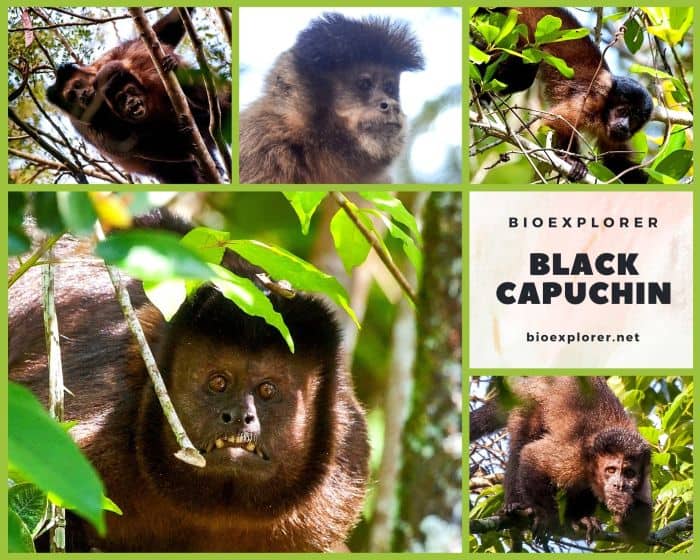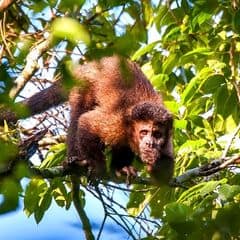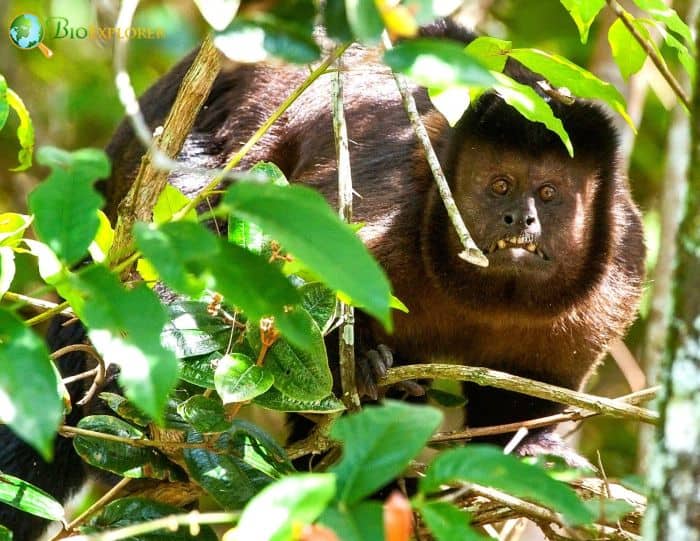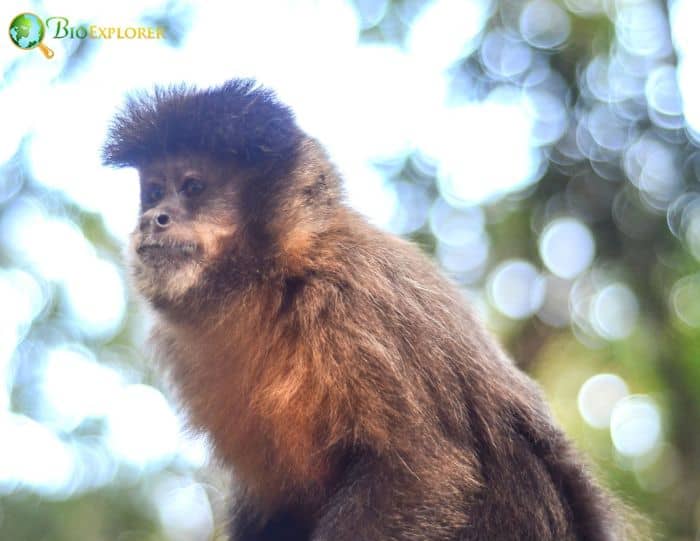
| Animalia | Primates | Cebidae | Sapajus | Sapajus nigritus |


- Common Name: Black capuchin
- Taxonomy Classification Year: 1809
- Monkey Size: 32 to 55 cm (12.60 to 21.65 inches)
- Skin Color(s): Black
- Habitat: Rainforest, forest
- Diet: Omnivorous
- Native Countries: Brazil, Argentina
Black capuchin Distribution
Black Capuchin Characteristics

The black capuchin[1], also called the black-horned capuchin, is a capuchin monkey native to the Atlantic rainforest of southeastern Brazil and extreme northeastern Argentina.
- The black capuchin gets its name from two distinct patches of black fur on its head.
- The fur on its back is black and dark brown, while its belly is lighter.
- On the face, this species has white pelage around the cheeks with black fur on the sides of the face.
- Like all capuchin species, Sapajus nigritus has a prehensile tail for grasping twigs and branches and navigating through the forest.
Black Capuchin Facts

- The black capuchin was originally called Cebus nigritus or Cebus apella nigritus. Although this has changed, many sources still name the black capuchin as part of the Cebus genus.
- This social animal likes to live in groups, typically between 6 and 20 members, and is hierarchical.
- Black capuchins are color blind, but this enables them to overcome the hassle of finding camouflaged insects and other defensive tactics prey use, such as mimicry.
- This species can use tools and hands to shell fruit and access sheltered, shelled nuts.
- In captivity, the black-horned capuchin’s average lifespan varies between 40 and 50 years. In the wild, the average lifespan of a black capuchin is about 30 years.
Suggested Reading: All The Monkeys
Cite This Page
APA7MLA8Chicago
BioExplorer.net. (2025, December 27). Black Capuchin. Bio Explorer. https://www.bioexplorer.net/animals/mammals/monkeys/black-capuchin/.
BioExplorer.net. "Black Capuchin" Bio Explorer, 27 December 2025, https://www.bioexplorer.net/animals/mammals/monkeys/black-capuchin/.
BioExplorer.net. "Black Capuchin" Bio Explorer, December 27 2025. https://www.bioexplorer.net/animals/mammals/monkeys/black-capuchin/.











